Back
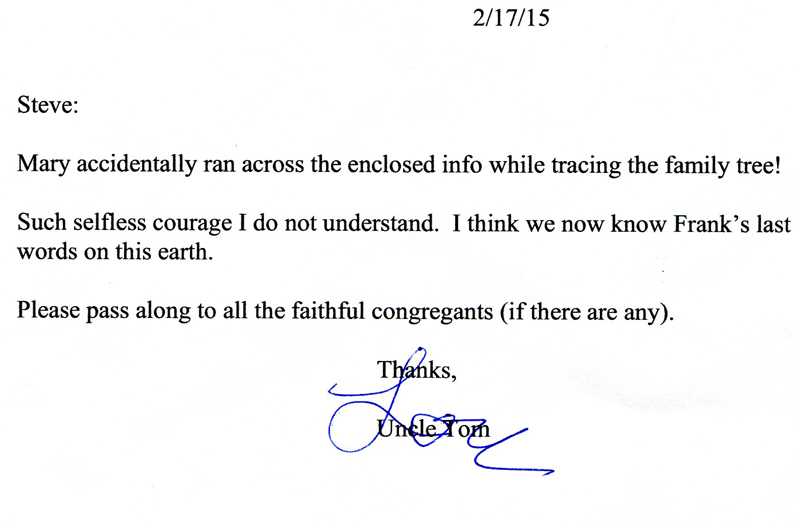 |
|
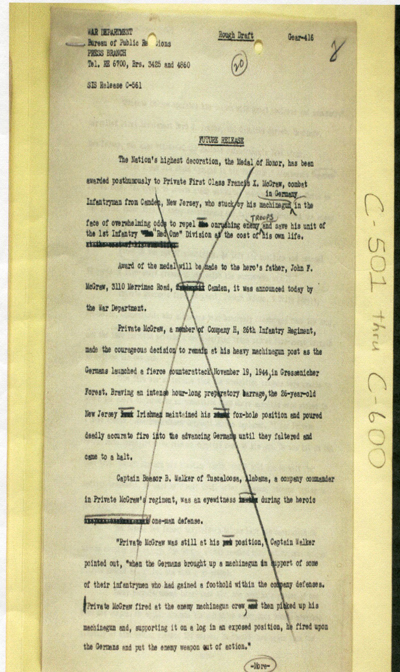 |
Future Release
The Nation's highest decoration, the Medal of Honor, has been awarded posthumously to Private First Class Francis X. McGraw, combat Infantryman from Camden, New Jersey, who stuck by his machine gun in Germany in the face of overwhelming odds to repel onrushing enemy troops and save his unit of the 1st Infantry "Red One" Division at the cost of his own life. Award of the medal will be made to the hero's father, John F. McGraw, 3110 Merrimac Road, Camden, it was announced today by the War Department. Private McGraw, a member of Company H, 26th Infantry Regiment, made the courageous decision to remain at his heavy machinegun post as the Germans launched a fierce counterattack November 19, 1944, in Gressennicher Forest. Braving an intense hour-long preparatory barrage, the 26-year-old New Jersey Irishman maintained his fox-hole position and poured deadly accurate fire into the advancing Germans until they faltered and came to a halt. Captain Boesor B. Walker of Tuscaloosa, Alabama, a company commander in Private McGraw's regiment, was an eyewitness during the heroic one-man defense. "Private McGraw was still at his position, Captain Walker pointed out, " when the Germans brought up a machingun in support of some of their infantrymen who had gained a foothold within the company defenses. Private McGraw fired at the enemy machinegun crew, then picked up his machinegun and, supporting it on a log in an exposed position, he fired upon the Germans and put the enemy weapon out of action." |
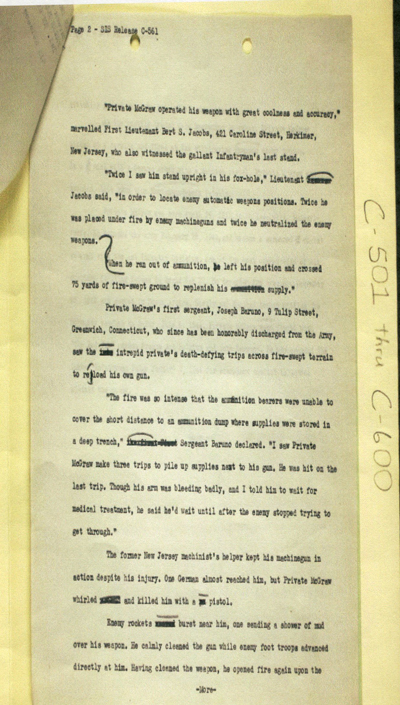 |
"Private McGraw operated his weapon with great coolness and accuracy," marvelled First Lieutenant Bert S. Jacobs, 421 Caroline Street, Herkimer, New Jersey, who also witnessed the gallant Infantryman's last stand. "Twice I saw him stand in his foxhole, " Lieutenant Jacobs said, "in order to locate enemy automatic weapons positions. Twice he was placed under fire by enemy machineguns and twice he neutralized the enemy weapons. When he ran out of ammunition, he left his position and crossed 75 yards of fire-swept ground to replenish his supply." Private McGraw's first sergeant, Joseph Baruno, 9 Tulip Street, Greenwich, Connecticut, who since has been honorably discharged from the Army, saw the intrepid private's death-defying trips across fire-swept terrain to reload his own gun. "The fire was so intense that the ammunition bearers were unable to cover the short distance to an ammunition dump where supplies were stored in a deep trench," Sergeant Baruno declared. " I saw Private McGraw make three trips to pile up supplies next to his gun. He was hit on the last trip. Though his arm was bleeding badly, and I told him to wait for medical treatment, he said he'd wait until after the enemy stopped trying to get through." The former New Jersey machinist's helper kept his machinegun in action despite his injury. One German almost reached him, but Private McGraw whirled and killed him with a pistol. Enemy rockets burst near him, one sending a shower of mud over his weapon. He calmly cleaned the gun while enemy troops advanced directly at him. Having cleaned the weapon, he opened fire again upon the |
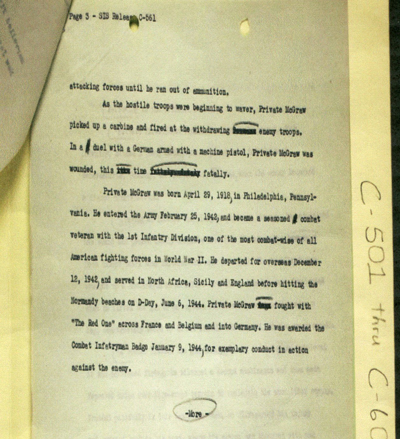 |
attacking forces until he ran out of ammunition. As the hostile troops were beginning to waver, Private McGraw picked up a carbine and fired at the withdrawing enemy troops. In a dual with a German armed with a machine pistol, Private McGraw was wounded, this time fatally.
Private McGraw was born April 29, 1918, in Philadelphia, Pennsylvania. He entered the army February 25, 1942, and became a seasoned combat veteran with the 1st Infantry Division, one of the most combat-wise of all American fighting forces in World War II. He departed for overseas December 12, 1942, and served in North Africa, Sicily, and England before hitting the Normandy beaches on D-Day, June 6, 1944. Private McGraw fought with "The Red One" across France and Belgium and into Germany. He was awarded the Combat Infantryman Badge January 9, 1944, for exemplary conduct in action against the enemy. |
Uncle Tom included this article |
|
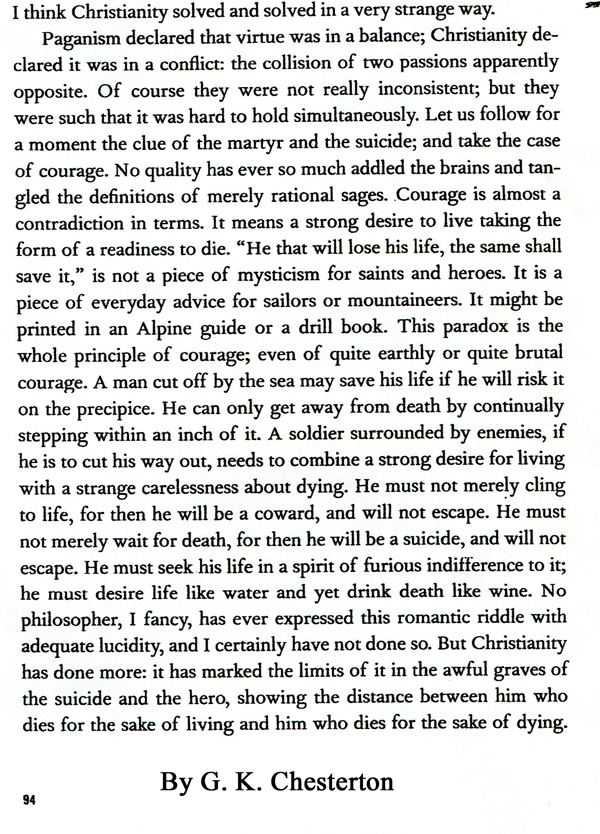 |
|
Back one page |
Top |